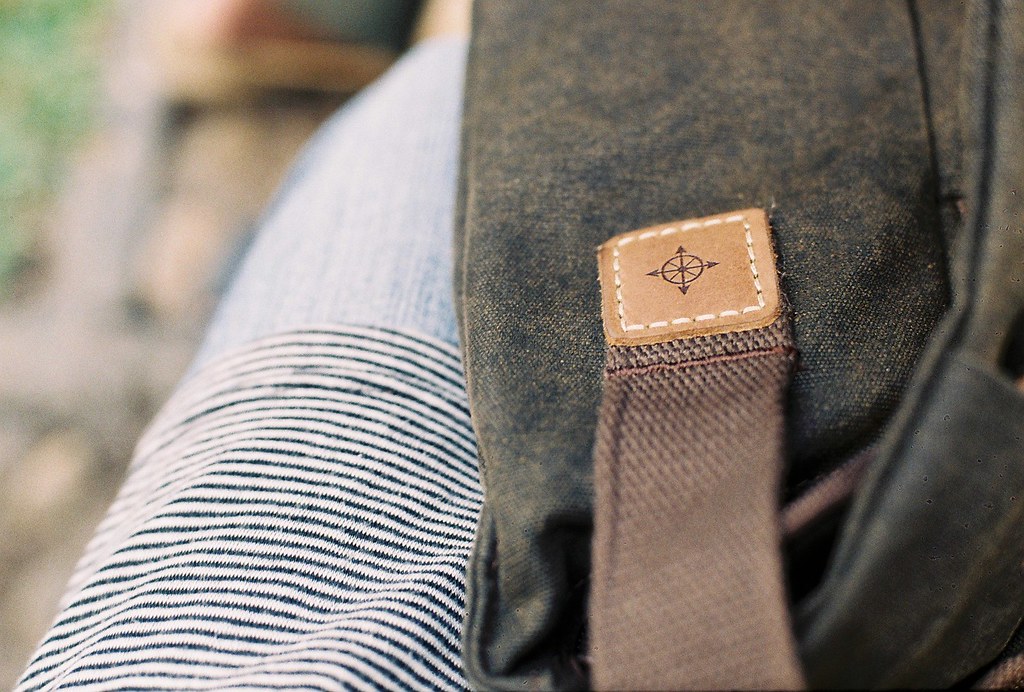 "When I was 5 years old, my mother always told me that happiness was the key to life. When I went to school, they asked me what I wanted to be when I grew up. I wrote down 'happy'. They told me I didn’t understand the assignment, and I told them they didn’t understand life." (John Lennon) "When I was 5 years old, my mother always told me that happiness was the key to life. When I went to school, they asked me what I wanted to be when I grew up. I wrote down 'happy'. They told me I didn’t understand the assignment, and I told them they didn’t understand life." (John Lennon)It's been a while since I posted my last book review. I'm planning to do lots from now on, I will try to catch on with this blog as much as I can. Hope the reviews can be effective and give useful and helpful information to those who read them as well. To be honest, I was busy with work, that I couldn't find time to write reviews of some books I've read in between the works. Well I need to practice to write more spontaneously, and a lot faster I guess haha. I was in the mood of looking for motivational, inspiring and moving stories or simply; words, when my eyes caught the very word on the book title 'Happiness'. I always seem to be curious about this thing, mostly about how to get it and how to manage it afterwards. Prior reading this book, I've always tried to track down what makes me happy. For example, at particular times when I felt happy, I wrote the moment down on a journal. I wrote how I was happy at the moment, but sometimes couldn't really define what it was. I just felt it, but sometimes when I happen to be in a similar situation again I'm not sure about how to get that happy feeling again. It's complicated. Curious about the happiness itself, I bought this book and read it in between hecticness of the last few months. Reading the first chapters, I realize this book is just a kind of book I'm looking for. A self-growth-and-improvement book. To be honest at first, I thought this book might be boring, but I like the way the writer tells her story; she gives her own daily experiences in a warm and humorous way of how to be happy, which are surprisingly easy (but not that easy though..) to be applied within ordinary life. This makes the book interesting and engaging to me. She also excerpts some datas and quotations from literatures and researchs which makes the book sounded more scientific and trusted. This book is not about a perfect person who tries to gain happiness, this is instead about the writer who also has flaws - like many other human beings - throughout her life but keeps trying to be better to gain happiness. The book is getting more interesting once you go on to the next chapters. So this is a book about how to be happy and happier, or simply to stay being happy for the time being. Sounds really simple, doesn't it. Yes indeed, simple yet very deep when we think of it as a method to live a happy life. In this book, Gretchen Rubin tries to pursue happiness in one year, to test her hypothesis that she could become happier by making small changes in her ordinary day. She hoped that she could change her life without changing her life by finding more happiness in her own kitchen. The project itself consists of some resolution points which the writer noted as her ways to happiness. I think the resolutions don't work only on her, it can also work for most people in general. It works on me though, for example, 'Don't expect praise or appreciation', 'Enjoy the fun of failure', 'Take time to be silly', 'Show up', 'Give proofs of love', 'Enjoy now', 'Sing in the morning', 'Be generous', 'Keep a gratitude notebook', 'Make time', 'Give positive reviews', 'Laugh out loud', and so on. Those small resolutions can boost my happiness even just for a little, to help make my day happier. Rubin classified a span time of one year into twelve months - each with different aims - focused on every aspect of life; vitality, marriage, work, parenthood, leisure, friendship, money, eternity, books, mindfulness, attitude, and the last is accumulative efforts which believed by the writer will bring happiness. All the aspects each has derivatives; concrete ways to achieve the big picture of each aspects. On January, the writer focuses on vitality; how to boost energy before doing other necessary things and helping her to stick with the resolutions for the upcoming months. She suggests to: 'Go to sleep earlier', 'Exercise better', 'Toss, restore, organize', 'Tackle a nagging task', and 'Act more energetic'. Every resolution I read seem to be realistic whilst easy to be done. I knew these simple things could help make us feel good after we done doing it, but I didn't really realize that it could be a list of usually-ignored, small, daily routine tasks. There are also some lovely words from the book. Some that I liked most are: » The days are long, but the years are short. Each day, each phase of life seems long, but the years pass so quickly, I wanted to appreciate the present time, the seasons, this time of life. I see her point in this. Every moment in our ordinary day is rare and will not be happen twice, don't let the fleeting time blind us from its preciousness. » Acting happy when I knew that my happiness would make someone else happy. True happiness means sharing. » Tried to appear happy and especially to be so. Show enthusiasm for positive things around us. This is probably the most important thing when in social situation; tries to see and bring the positive, or give positive reviews instead of whining about particular things. Tries to reduce negative comments (though Rubin herself never manage to go an entire day without a negative comment), it will be a useful exercise and will help us feel happy too. » The more I kept my resolutions, the happier I was. Being a better person - in whatever aspect - will help us to be happy. » You can start small (putting your keys away in the same place every night) or big (repairing your relationships with your family). To be honest, I love how happiness can be achieve through small things. » To be happy, you need to consider feeling good, feeling bad, and feeling right, in an atmosphere of growth. Being happy doesn't always mean feeling good. True and long-lasting happiness sometimes can only be achieved by hard-working effort which usually acquired by feeling bad. » What's fun for other people may not be fun for you, and vice versa. Everybody's special in their very own way; that is why. » Happiness comes not from having more, not from having less, but from wanting what you have. Try to be that person who is grateful from waking up in the morning to going to bed at night. » Appreciate ordinary days. Cherish every moment with our loved ones. Eat all the food on your plate. Put down our cameras for a while to enjoy surroundings (I'm currently trying hard to do this one...). Spread the love. I agree to what Rubin did. To some point, I think I'm the type of person who would think of happiness to be something that remains mysterious and surprising, not to be something ready to be grasped, or waiting on the shelf to be found. I want it to be something challenging to be found, that could make the finish line more joyous. But the happiness Rubin brought in this book is not that definition of happiness. This is more about how to stay happy, without changing our lifes. It is not about the 'goal' happiness, it is about the 'resolution' happiness. She makes a clear distinction on goal and resolution which I find very inspiring: You hit a goal, but keep a resolution. 'Run a marathon' makes a good goal. It’s specific, easy to measure success, and once you’ve done it, you’ve done it. 'Sing in the morning' and 'Exercise better' are better cast as resolutions. You won’t wake up one day and find that you’ve achieved it. It’s something you have to resolve to do every day, forever. Anyway, we people should be happy. If the environment around you seems to be unsupportive and dull, still we have to try to find happiness there, or simply share the only happiness we got. I know this sounds cliché, I don't think I can do this either, but I want to try. Because one of the best ways to make yourself happy is to make other people happy; one of the best ways to make other people happy is to be happy yourself. I'm glad I found this book on the shelf. Not many books I found that could actually speak to me like this one. So thank you, Gretchen Rubin, for the inspiring book. She also said that everyone could make their own happiness projects. And every one of it must be different (based on their background, religion, education, nation, etc), since people are each unique. I don't know but I started to think that if many people make their own happiness project (realizing what are the things that could make them happy in a good positive way) maybe we could make our own environment better and that means making the world a better place to live. Because being happy means sharing, be sure to be contagious when you're happy. Image was taken from here. Labels: book review  |
 home profile Hello! My name is Yttria. Here's where I share some of my photoworks, sketches, stories and quick thoughts. Some are just doodles and mumbles. Hope you enjoy it. content
» architecture» artsy | design » crafting | handmade » good words » landscape » music » pattern | texture » 35mm photography » photography » book | readings » sketching » the beatles » traveling » random links
craft \ handmade In progress! flickr
   
friends
Adlina Hasna MunawarAfina Raditya Andru Putra Twinanda Aqmarina Andira Astri Endawati Astri Widoretno Dina Rismala Eliza Viandrayani Aziz Grafitya Ariwahjoedi Hersanti Eko Ratnaningrum Lakhsmita Indira M. Khanif Nudiyanto Medria Shekar Rani Muloyoung Nadiya Rahmah Nadia Shevila Thohari Oka Kuswandi Rahman Andra Wijaya Raisa Tjarinto Rosi Destiani Salma Dwikartika Seramika Ariwahjoedi Siti Suci Printiasti Taqisthi Viona archives
patterns of the day ♥
     
///
credits
Blog stats from Statcounter.Background image from Pinterest. © Yttria A. 2020 |




Post a Comment